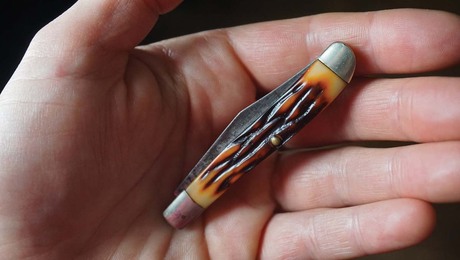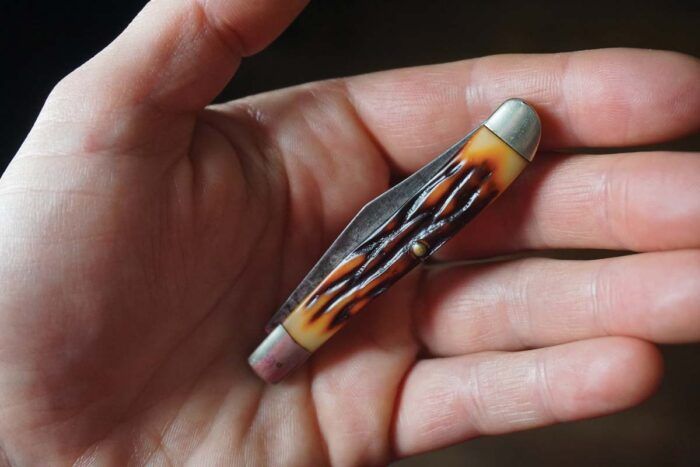When people ask me to recommend tools, I usually disappoint them. I was asked recently to write about sloyd knives for Fine Woodworking and I immediately replied, “I don’t care about sloyd knives. I think people spend too much time fussing over finding the perfect knife and not enough time actually carving.”
Then, as usual, I backtracked partway and said, “I mean, it’s nice to have something that works well and is reliable. But I know fantastic carvers who started with utility knives.”
It’s not the knife that makes the carver.
As a kid I carved with a small Remington pocketknife that came in a big package of .22 ammunition. I carved a lot with that knife and it worked very well—in spite of my questionable sharpening prowess as a 10-year-old. I learned about wood grain with that knife, and about how to sharpen. It was exactly what I needed. As my skill grew, so did my knowledge of what was required in my tool arsenal.
When I started carving professionally, I did succumb to the idea that to get better I needed more expensive tools. At the time, I was fascinated by carving bowls; I still love that form. My first purchase was a Pfeil gouge (7/30, if anyone is curious) and I used it for everything including spoons. It worked well, but I was convinced that if I got a more expensive brand everything would somehow miraculously become better.
After waiting for months to get my Excalibur, I opened the box eagerly. But when I put it to use, I was disappointed that the handle was uncomfortable. And it had cost so much that I was afraid to sharpen it.
I sold it years later, barely used.
That excellent carver who started with a utility knife upgraded, of course—because if you start with a utility knife you learn quickly what works and what doesn’t and, more importantly, why it works or doesn’t. Going through the process of learning is invaluable. It’s the whole point of doing anything. You can skip steps, but if you do, you’re not doing yourself any favors.
When it comes to tools, I say start with what you have. You don’t need to spend hundreds of dollars on a knife to make good work. Fancy tools won’t improve your skill. Time, effort, and commitment are what make a good craftsperson. So when the question inevitably arises, I answer, “Don’t worry about the perfect knife. Love for your work and for the process is the best tool you could ever possess.”
—Amy Umbel is a carver, writer, and podcaster who travels the world to teach and learn about craft.
Sign up for eletters today and get the latest techniques and how-to from Fine Woodworking, plus special offers.

